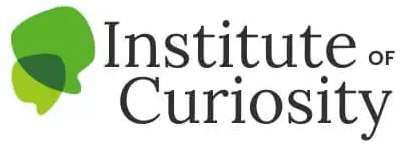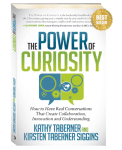Effective communication isn’t just about what is said; it’s about the questions asked. Intentional, curiosity-driven questions open the door to understanding, build trust, and spark collaboration across teams. Yet, many professionals default to assumptions or directives, limiting connection and innovation.
The solution? Master the skill of asking better questions to transform professional conversations, team engagement, and results.
Why Questions Matter in Communication
When you ask better questions, you:
Gain clarity and prevent misunderstandings
Thoughtful questions uncover details and prevent misunderstandings.
Build trust and encourage openness
Demonstrating curiosity values others’ perspectives, and encourages openness.
Spark engagement and innovation
Open-ended questions stimulate dialogue, active participation, and collaboration. New ideas often emerge from a single insightful question.
In contrast, assumptions and statements can create barriers. Questions shift the focus from judgment to understanding, laying the groundwork for creative problem-solving.
The Four Types of Questions (and When to Use Them)
1. Closed Questions: Quick and clear
Closed questions can be answered with “yes” or “no.” They narrow a conversation and are helpful when confirming details or decisions.
- Example: In a team meeting – “Do you agree with this approach?”
- Use When: You need quick clarity or confirmation.
2. Judging Closed Questions: Why they fail
These often come across as sarcastic or critical. While some people think they’re being funny, they usually leave the other person feeling judged, blamed, or shamed. They don’t serve a productive purpose.
- Example: “Did you really think this was a good idea?”
- Impact: Shuts people down, erodes trust, and stalls the conversation.
3. Curious Open Questions: Your leadership superpower
Curious open questions begin with what, how, who, when, or where, and they’re asked with genuine interest—not judgment. These questions expand conversations, build stronger relationships, and spark new ideas.
- Example: “What do you think will make this project successful?”
- Use When: You want to explore, learn, and invite collaboration.
4. Judging Open Questions: Traps to avoid
These look like open questions but carry blame, judgment, or shame. They’re not curious, and they don’t help communication.
- Example: “How could you possibly think this was a good idea?”
- Impact: Triggers defensiveness, closes the conversation, and damages trust.

The Takeaway: Your Question Shapes the Conversation
Not all questions are created equal. Judging closed or open questions may feel funny or clever in the moment, but they don’t serve a real purpose; most often, they leave the other person feeling judged, blamed, or shamed. Closed questions can help narrow or confirm information. But if you want to truly open dialogue, deepen trust, and spark collaboration, curious open questions are your superpower.
Try This: A Daily Question Audit
At the end of the day, reflect on three questions you asked. Label them: closed, curious, leading, or judging.
- Did your questions open or close the conversation?
- How did they impact trust and understanding?
- What might you ask differently next time?
When in doubt, lead with a ‘what‘ or a ‘how’ question. These open the door to dialogue instead of shutting it down. And if you’re stuck, a simple “Tell me more about…” is a powerful way to keep the conversation open, curious, and moving forward.
Because the questions you ask don’t just shape conversation, they shape results.
Start Communicating Effectively Today
Ready to turn everyday conversations into opportunities for clarity, trust, and collaboration? Our coaching programs and team development workshops give you the tools to ask better questions, stay grounded under pressure, and lead with curiosity. Explore how we can help you and your team communicate with impact when it matters most.
Begin Asking Better Questions to Build Trust and Impact
- Coaching Programs – Build the skill of asking better questions to lead with clarity and impact.
- Team Workshops – Practice Curiosity Skills to boost trust, collaboration, and innovation.
- WE-I Profile Assessment – Discover how you show up under stress and identify communication blind spots.





